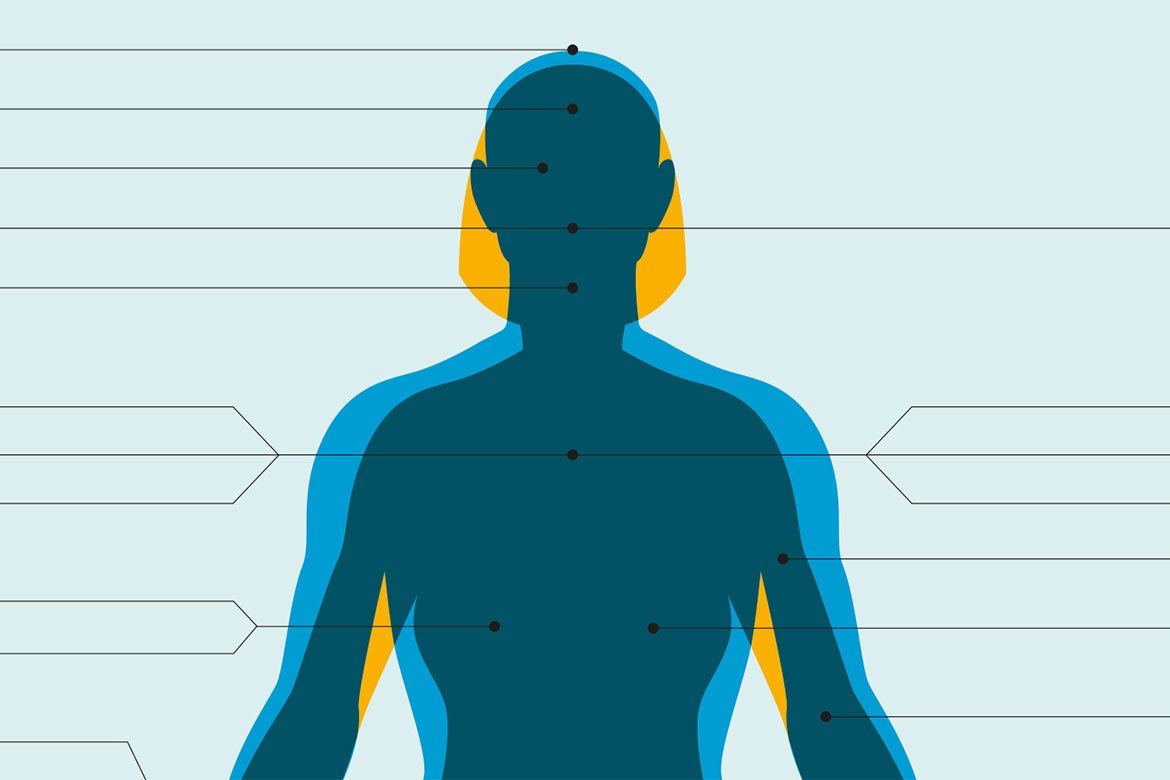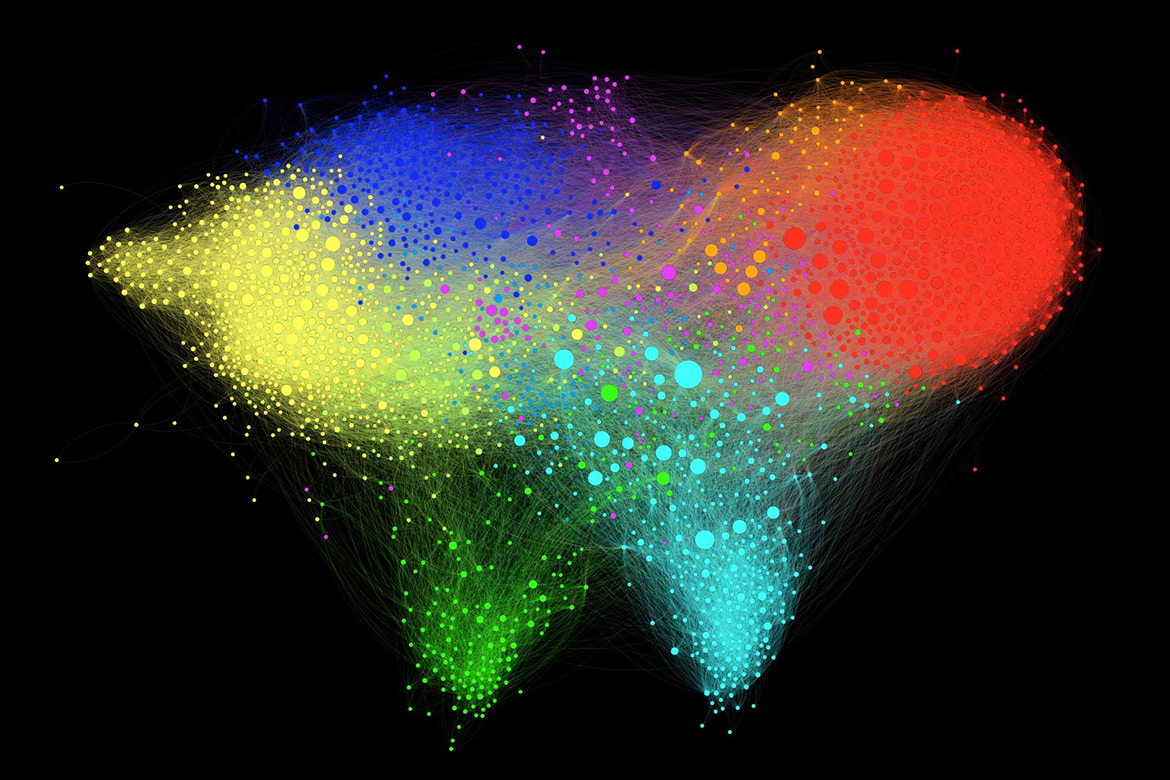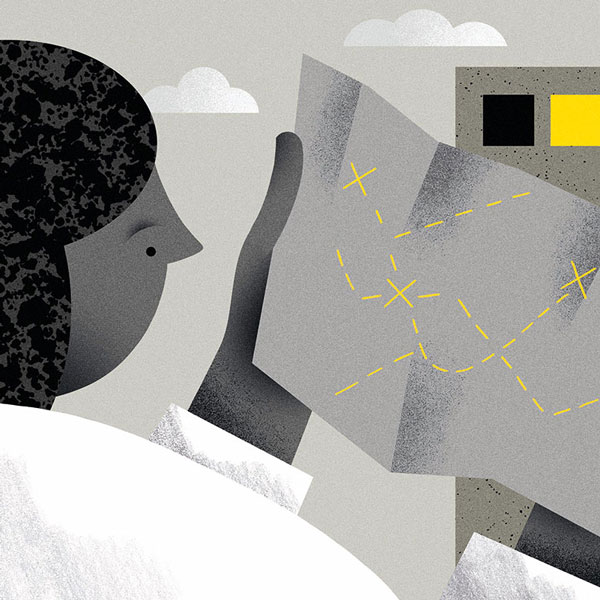Feature: Patient data
Data for one, and data for all
Both personalised medicine and public health – two leading approaches in modern medicine – need uniform standards for dealing with data, writes the joint editor-in-chief Judith Hochstrasser.

Deciding how to deal with patient data is a source of debate and perplexity. | Image: David McCandless and Fabio Bergamaschi, adapted by: Oculus Illustration
They are a defining, contrasting pair of concepts for our time: the individual and the collective. Since the pandemic, arguments about which of them has the moral upper hand have become ever more impassioned. Some people want to be able to react in a wholly personal capacity to each and every circumstance, while others would like to determine how society as a whole should react to a problematic situation.
When it comes to health matters, the tension between the individual and the collective is especially acute, as can be seen in this issue of Horizons, which focuses on how we handle medical data. The data protection issues involved reflect on a small scale the bigger conflict that confronts us. On the one hand there is the individual’s right to privacy, while on the other there is the research community’s need for as much data as possible so that they can develop preventive measures and therapies for widespread diseases
Paradoxically, it is the standardised collection and utilisation of data for collective purposes that is also driving the process of individualisation in medicine. Many findings of so-called ‘personalised medicine’ are based on data that have been collected on a large scale. It is predicated on the belief that every sick person needs a therapy that has been adapted personally to their needs. In a sense, it is a logical development of ‘individual medicine’, which began its triumphal procession through the USA and Europe after 1945. Then, as now, there was great optimism that this new kind of medicine would be able to treat almost all diseases. But if there are also to be improvements in public health – i.e., the health of the entire population – then it, too, requires uniform standards for dealing with data.
Both the individual and the collective therefore need big data. And decisions on how to deal with these data will have to be taken on both an individual and a collective basis. In health matters, these two apparent opposites, the individual and the collective, are utterly interdependent. They are so closely linked that neither can gain the moral upper hand, regardless of how long we want to argue about it.




